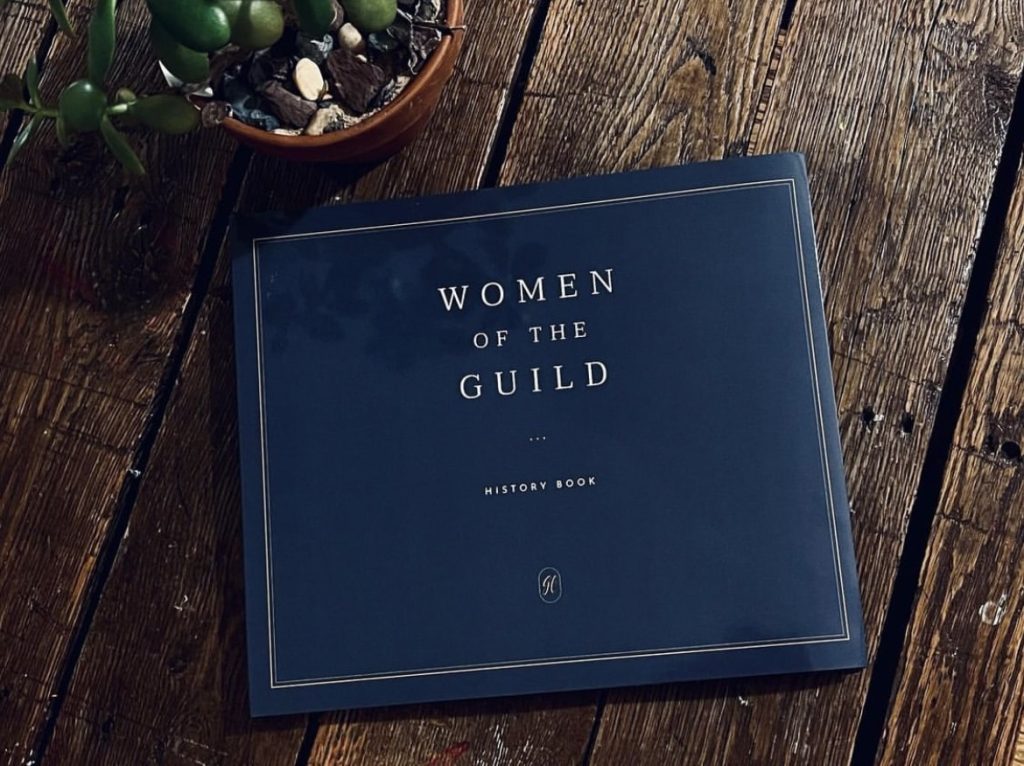
Happy Women’s History Month! As a historic boutique hotel located in the former headquarters of the New Century Guild—one of the first clubs for working women in America—we’re honored and proud this month and every month to be a part of the grand narrative of this city and its women. And this month, if you book a stay at Guild House Hotel on a Wednesday, you receive a complimentary ticket to Women’s Way Wednesdays, presented by Stratus Lounge and the Sisterly Love Collection featuring food and drink from great woman chefs in Philly, and also drinks from women-owned/operated distilleries and breweries, and female winemakers.
For background: The New Century Guild, which was founded in 1882, and the women who created it were ahead of their time—not just because they supported (and were!) women in the workforce at a moment when much of the country still didn’t want women working outside the home, but also because they fought for labor rights, for women’s suffrage, for children’s welfare, and much more.
Inside their headquarters—the gorgeous Victorian manse in the heart of Philadelphia, and now National Historic Landmark that houses our luxury boutique hotel—Guild members took classes, organized and rallied for philanthropies and political causes, made friends and grew networks, and found any number of ways to make history. Visit our hotel, and you can read all about some of the remarkable individuals in the Guild—women who were artists, activists, professionals, writers, educators. (Also, the namesakes for our suites!) And in the meantime? Find the whole story of the Guild (and of our boutique hotel) on our site.
Of course, the ladies of Guild were just a sampling of some of the great Philadelphia women who shaped and defined the city, the country, and the way we live today. Philly has a long history filled with intrepid, intriguing, impressive females. Here, we celebrate a handful of the greats—just a small snapshot of fascinating Philadelphia women we love, and where you can go here, in the City of Sisterly Affection, to learn more about them and pay tribute.
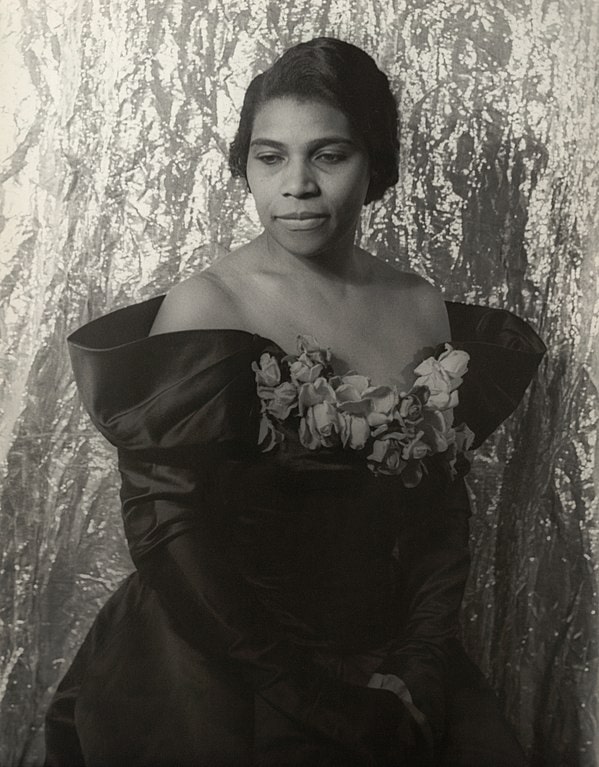
Marian Anderson photo by Carl Van Vechten
Marian Anderson
The famous opera star and civil rights icon was a Philly girl—born here in 1897, raised here, sang in church here, bought a house as an adult here. Her voice, born of a talent seen “once in a hundred years,” famed conductor Arturo Toscanini said, was the most famous in the world for a period of time, though she was known for a humble and gracious demeanor her entire life. Still, so great was her reputation that she regularly sold out concerts, sang arias and spirituals for presidents and royalty, even received a Presidential Medal of Freedom. (She was also the first Black American to solo with the New York Philharmonic and to perform on the main stage of the Metropolitan Opera.) Today, you can see the historic marker to mark the site of the (now demolished) church in which she grew up singing; her archives at the University of Pennsylvania (and online!); the rec center named for her (with a mural of her face on the wall), and cute little row house at 762 South Martin Street that was once her home. Inside the house is a museum, with Marian’s clothes, photos, books, memorabilia, collectibles and more. The museum is temporarily closed for repairs after a flood, but set to reopen later this spring. In the meantime, you can still catch virtual exhibits on the website.
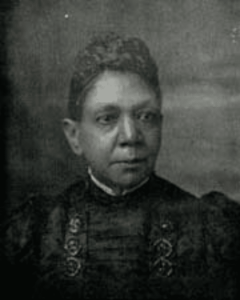
Fanny Jackson Coppin
Fanny Jackson Coppin
The brilliant pioneering educator—who was born into slavery, and later became one of the first Black graduates of Oberlin College—became the principal of the Institute for Colored Youth in Philadelphia (the precursor to Cheyney University) in 1869. The first woman—Black or white—to head a co-ed school in the country, Fanny helped “democratize an institution that middle-class Black families used to educate their children to become professionals and teachers,” as the historical website explorePAhistory notes. In fact, at one point, three quarters of the Black teachers in the city were ICY grads. A gifted speaker, advocate for women’s and Black Americans’ rights, early vice-president of the National Association of Colored Women, and change-maker, Coppin is a change-maker Philly has been incredibly proud to claim. You can see a history marker honoring her at Cheyney University, wander by the South Philly elementary school named for her, and visit her gravesite at Merion Memorial Park in Bala Cynwyd.
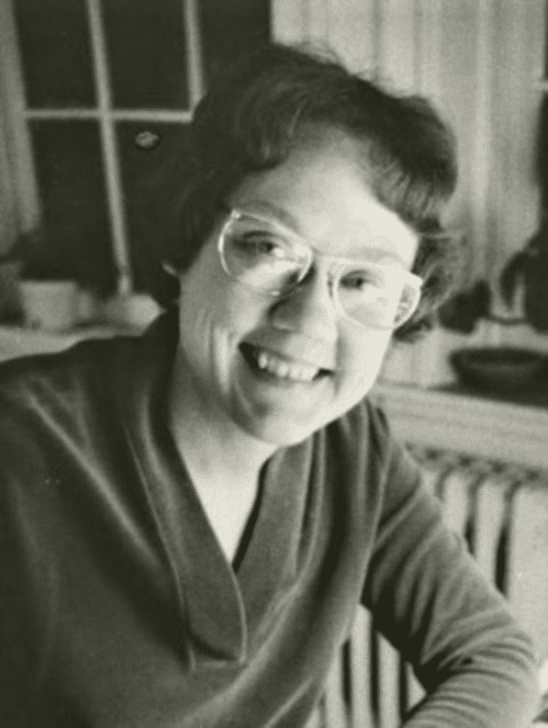
Barbara Gittings, photo by Kay Tobin, NYPL Digital Collections
Barbara Gittings
Gittings has been called “the mother of the LGBT civil rights movement” for the work she did to dismantle discrimination against the LGBT community, and for her successful years-long fight to change the American Psychiatric Association’s classification of homosexuality as a mental illness. The longtime Philadelphian also edited The Ladder from 1963 to 1966, the first national lesbian journal, marched in the very first gay picket lines at the White House in the 1960s, and, along with another activist named Frank Kameny, planned and organized some of the first public rallies for gay and lesbian equality. Called “Annual Reminders,” the demonstrations were held four years running (1965-1969) at Independence Hall on the Fourth of July. In 2012—five years after she passed away—the city named the intersection at 13th and Locust (that’s the intersection right by our Guild House Hotel!) after the gay-rights pioneer and thought-leader: Today, you can check out Barbara Gittings Way, and also visit her historical marker at 21st and Locust in Rittenhouse Square. There’s also the massive, 1500-piece Gittings Collection of gay and lesbian literature at the Free Library’s Independence Branch in Old City, and the fabulous Beyond the Bell Tours, whose can’t-miss “Badass Women’s History Tour” includes stories about and destinations related to Gittings, along with tales of of other female Philly superstars.
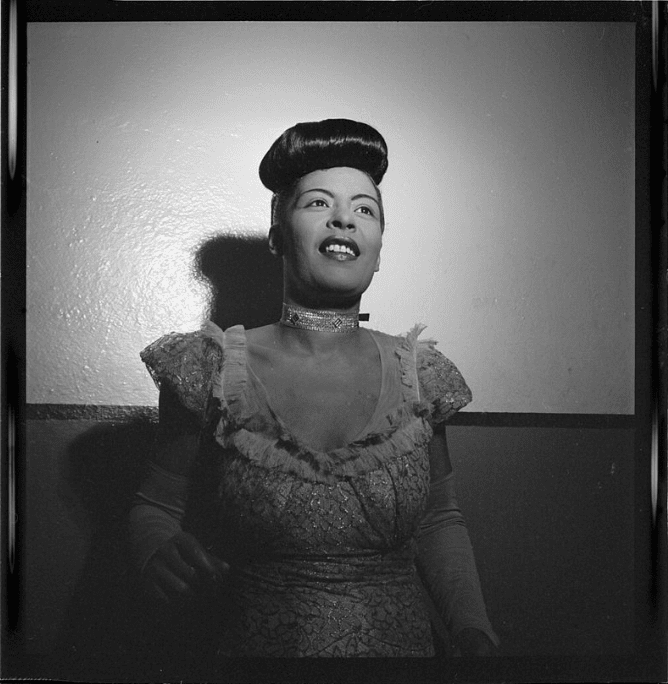
Billie Holiday, photo by Gottlieb, William P.
Billie Holiday
The beautiful, tragic and deeply influential jazz singer was born in Philly in 1915, at Philadelphia General Hospital on Curie Boulevard in West Philadelphia. And while she’s mostly associated with Baltimore, where she grew up, and New York, where she spent most of her career, Billie also spent a great deal of time performing in Philadelphia, too. (Ours city was also the site of her well-known narcotics arrest, tragically, and her trial.) Her historical marker stands at Broad and Locust, in front of the site of the old Douglass Hotel, which housed the venue Showboat, one of the places she performed. Historic preservationist Faye Anderson, who runs the history-focused website and project All That Philly Jazz, also periodically offers walking tours that look at Holiday’s time and legacy in Philly: Check her site to stay in the loop or contact her.
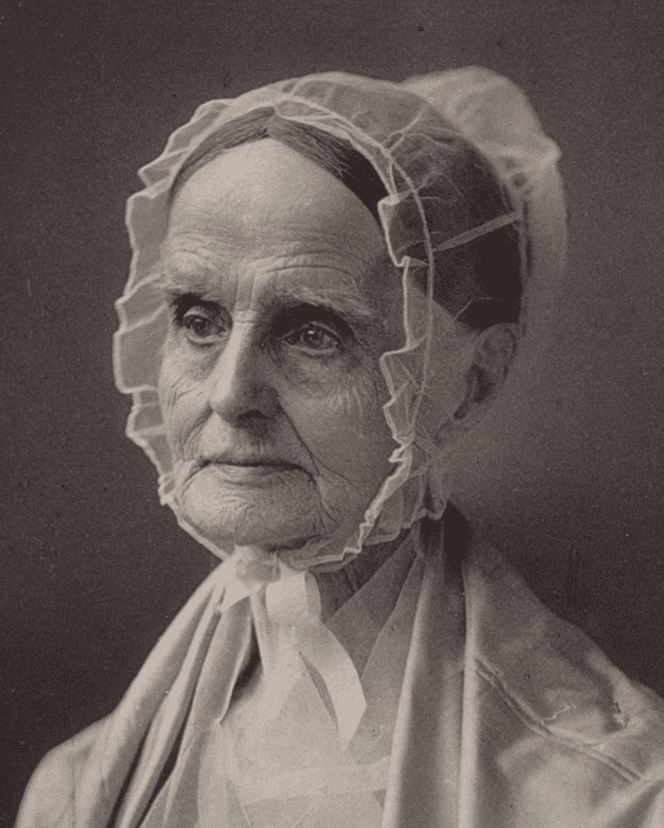
Lucretia Mott, photo, by F. Gutekunst
Lucretia Mott
A Quaker who abhorred slavery, Lucretia Mott felt compelled to help the people who escaped it find freedom in Philadelphia—her home at 4th and Arch Streets was a stop on the Underground Railroad. She also played a fairly prominent role in American history: The known and vocal abolitionist was also an advocate for women’s rights, and a talented speaker and organizer. She helped organize the Seneca Falls Convention, was a founding member of the National Anti-Slavery Coalition of American women, and was also one of the founders of the Philadelphia Female Anti-Slavery Society in 1833. (As it happens, that organization also had ties to the New Century Guild—today, our Mary Margaretta Suite honors two women who were fellow suffragists and abolitionists alongside Lucretia, and worked with her in the Society). Along with friends like William Lloyd Garrison, Susan B. Anthony, Frederick Douglass and Elizabeth Cady Stanton, Lucretia wrote and spoke and spent the bulk of her lifetime fighting for equal rights for African Americans and women. Today, she’s buried at the historic Fair Hill Burial Ground in North Philly—you can see her headstone there. A historical marker for Lucretia lives near Elkins Park in Montgomery County, where she lived later in her life, and there’s another marker honoring the Philly Women Anti-Slavery Society at 5th and Arch.
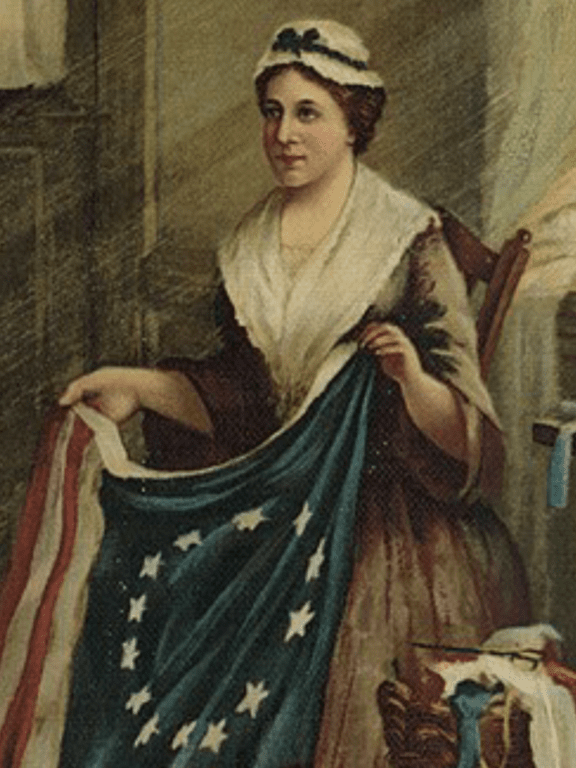
Betsy Ross: H.A. Thomas & Wylie.; Weisgerber, Charles H., artist
Betsy Ross
Maybe the most well-known of all Philly women, Betsy (short for Elizabeth) lived in Philadelphia from the time she was three years old and led a full, fascinating life here—a Quaker, a woman thrice married, twice widowed, a mother, a patriot, and a woman who found herself immortalized in the country’s Revolutionary narrative. Most Americans simply think of her as a seamstress, but historians will tell you that in fact she was an extensively trained and talented upholsterer — and before she sewed American flags for the Continental army, she also made George Washington’s bed clothes. (She also made cartridges for the soldiers fighting the war.)
Places Betsy Ross spent time (a Quaker meeting house, Christ Church) are scattered about Old City, but her most famous landmark is her former residence on Arch Street, where you can tour the place, and even meet “Betsy” and hear stories about her life. Bonus: On Saturdays during Women’s History Month, the house is offering free programming featuring interactive storytellers about other women in history during Ross’s time.
Want to book a room or suite at Guild House Hotel, a historic Philadelphia hotel in the heart of the city? Click here to plan your stay!


